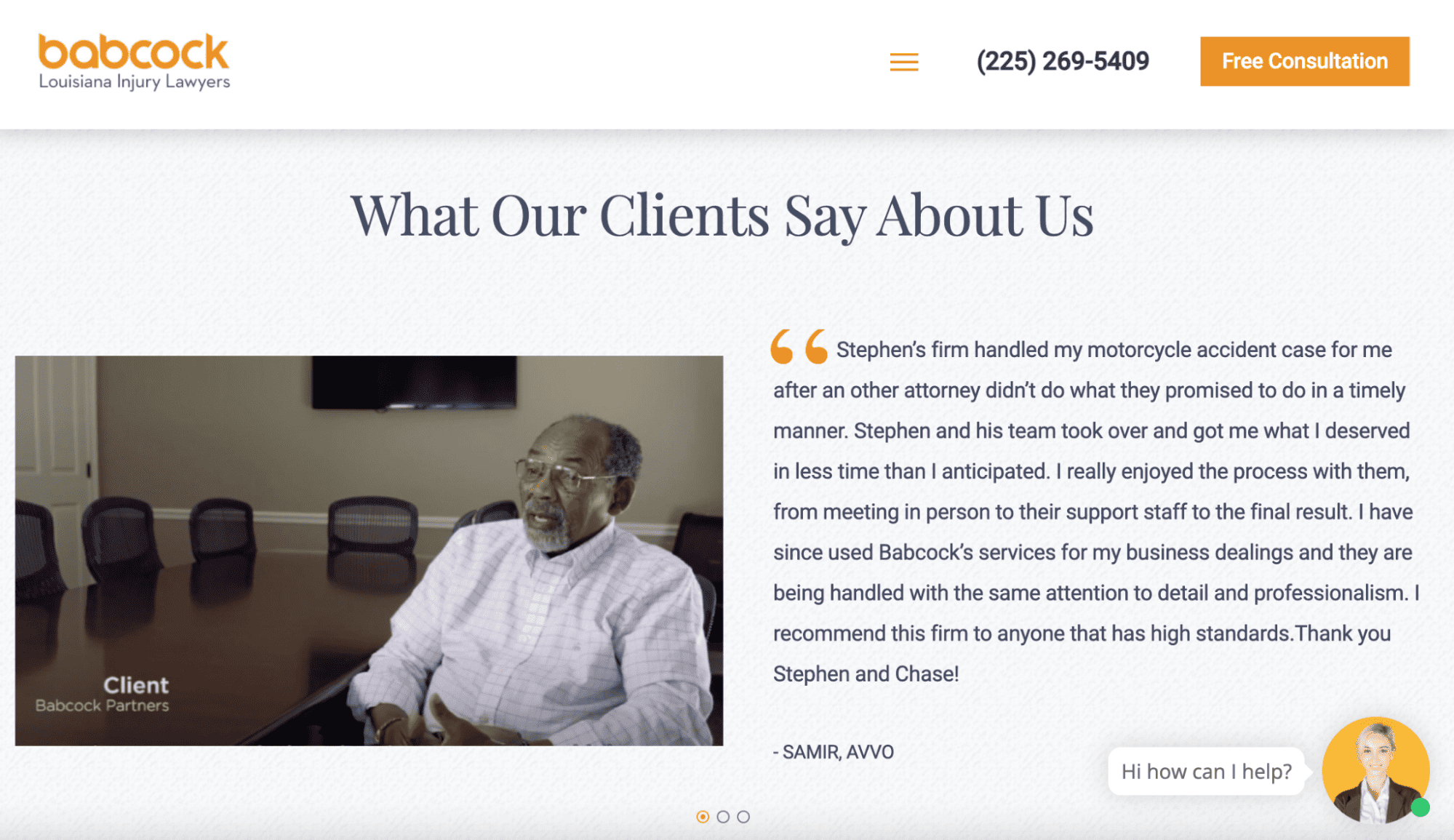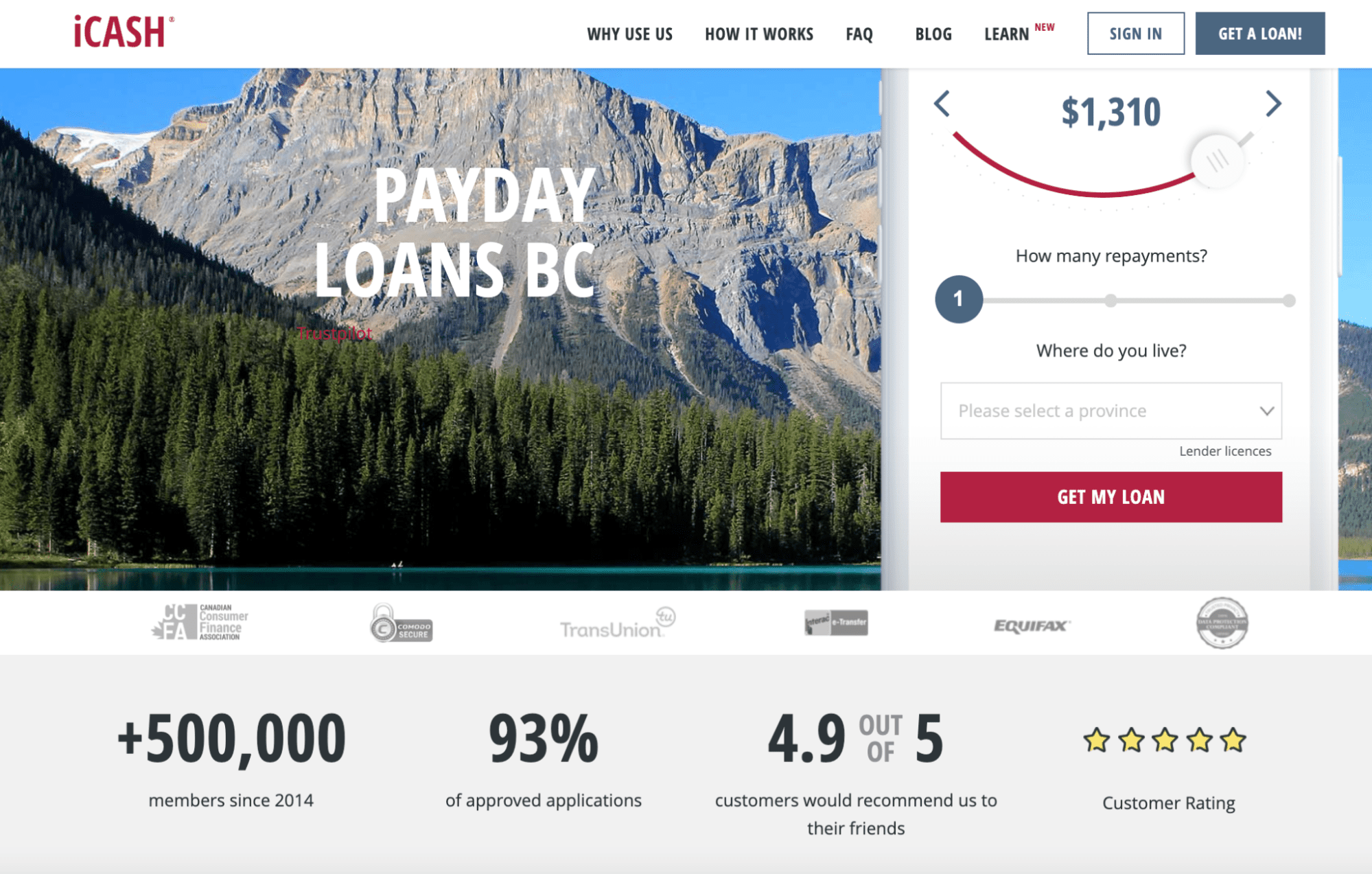The following is a contributor post from Loganix CEO Aaron Haynes. Learn more about Aaron at the end of the article.
Reviews can show that you have provided great work for clients in the past, making new website visitors more likely to purchase from you. But did you know that, while reviews aren’t necessarily used as a formal ranking factor, they can actually have a big impact on your search engine optimization (SEO)?
In this article, we’re going to outline some SEO benefits that online reviews can have. Let’s get started!
Written Testimonials Can Help You Target More Keywords
In order to improve your search engine visibility and rank highly for queries relevant to your products or services, you’ll need to incorporate the right keywords into your website’s copy. And, if you collect written testimonials from past clients, it’s likely that they’ll contain even more words and phrases related to the products or services that you offer.
This will help you to target more keywords in a natural way, increasing the keyword density of your web pages without you having to do much work. So, if you’re looking to boost your SEO, it’s a good idea to reach out to your past clients to ask for their feedback.
The placement and design of your reviews and testimonials are very important, and factors you need to carefully consider. Consider including the testimonial writer’s name, job title, and a picture if possible — this will help to give them more credibility. If you have a lot of long testimonials, you could also consider compiling them in a carousel for ease of viewing. If you have a couple of shorter testimonials, place them close to the top of the page where the user is most likely to see them.
Let’s take a look at a few businesses that have written testimonials on their websites for inspiration.

Babcock Injury Lawyers, an injury attorney firm based in Louisiana, has reviews towards the bottom of their homepage in a carousel. As we’ve covered, most of these include key phrases that could support the company’s efforts in trying to rank on relevant search engine results pages.
For instance, the review you see here includes the phrase “motorcycle accident”, and other reviews in the carousel include terms like “non-moving accident” and “automobile accident”. These are all terms that people searching for a personal injury attorney could be plugging into Google — because the words are included in the review, Google will take note and give them a boost on the search engine results pages (SERPs) as a result.
Be sure that the reviews you highlight on your website include keywords that are relevant to your business, as Babcock Injury Lawyers has. This will give Google a better idea of what your website is about and boost your SEO as a result.

Backlinko, a website dedicated to SEO training and link building, uses written reviews on their homepage, as well. Their reviews contain a litany of relevant keywords, including “SEO knowledge”, “higher rankings”, and “content marketing advice”. Because they’re included in the reviews, Google is more likely to rank Backlinko highly for these terms.
For your website, select and highlight reviews that contain a wide variety of keywords related to your business, as Backlinko has. This will ensure that you rank higher on the SERPs for searches relevant to the products and services your reviewers are recommending!
Positive Reviews Will Earn Search Engines’ Trust
Search engines want to provide their users with the best experience possible — this means that they only rank websites that prove they are trustworthy and provide high-quality services and information.
E-A-T stands for expertise, authoritativeness, and trustworthiness. It’s also a term that comes from the Google Search Quality Rater Guidelines, and it’s something that the search engine has been focusing on a lot more in the past few years. In other words, if you can prove to Google that you run a trustworthy business that provides high-quality products and services, they’ll consider you worth promoting and give you a boost on the SERPs.
There is a lot that goes into using your positive reviews to show off your E-A-T, getting the attention of search engines, and boosting your SEO. Here are a few tips to get you started:
- Collect reviews from many different sources, as opposed to just Google reviews
- Highlight reviews that are as recent as possible
- Try to showcase as many reviews as possible — this means that you need to ask your past clients and customers to leave a review on a regular basis!
Keep these three metrics in mind: review diversity, review quantity, and review recency. If you can show Google that you have diverse and high-quality reviews, they’ll be more likely to rank you highly on the SERPs.
Google Reviews are Great for Local SEO
Google My Business is a tool that lets you optimize your business listing in local search results. This means that, when people Google your business, they will get the most accurate and up-to-date information regarding your location, hours of operation, images, and the like. Google likes to prioritize businesses that have a Google My Business listing so if you haven’t claimed your Business Profile on Google yet, you need to do so.
Google My Business listings also provide a space for customer reviews. If you have a lot of positive reviews, Google will take this into account when ranking you, so it’s important that you encourage your customers and clients to review your business through Google. You could even send them a small incentive or discount in exchange for their help!
When reviews start to roll in, be sure to respond to them, whether they’re good or bad. Thank customers who leave a positive review, and contact those who give negative reviews to see how you can turn their experience around. This will show Google that you regularly engage with your customers, proving your trustworthiness and making it more likely that they’ll rank you highly on the SERPs.
If you have a lot of positive Google reviews, this can really improve your SEO! People tend to trust businesses with a lot of positive reviews, meaning that they’ll be more likely to click on your website. A high click-through rate is another factor that Google takes into consideration when ranking websites on the SERPs, meaning that the more people you attract to your website, the more likely it is that you’ll rank higher.
Positive Reviews Can Help to Reduce Your Bounce Rate
Your bounce rate is the percentage of internet users who visit your website and then quickly leave, or bounce, rather than clicking around through your website. If a browser comes to your website and then sees positive reviews, they’ll be encouraged to stick around longer and check out more of your products. This will reduce your bounce rate.
Search engines only like to send their uses to websites that are helpful and provide high-quality information. If you have a high bounce rate, they’ll assume that your website isn’t helpful. This means that lowering your bounce rate is important for improving your SEO!
When displaying reviews on your website, be sure to put them close to the top of the page. This will ensure that people don’t have to scroll far to see them. Star ratings on a scale of one to five can be very helpful, as well, particularly if you sell products. This will help people quickly get an idea of the quality of your products or services and allow them to compare their options.
You can also give your reviews more credibility by including a name, job title, and headshot. This will show website visitors that the people reviewing your products and services are legitimate!
Let’s look at some examples of websites that use reviews well in this way to reduce their bounce rates.

iCASH, a financial services company, does a good job of displaying reviews on their website in a way that’s likely to reduce their bounce rate. As you can see in the image above, they showcase a variety of metrics that serve as social proof to website visitors.
iCASH notes that they have had more than 500,000 members since 2014. They also boast a 93% approval rate for applications, a 4.9 out of 5 customer recommendation rate, and they have an average rating of five stars! When website visitors see these reviews and metrics, they’ll be more likely to trust iCASH and carry on browsing the website, lowering their bounce rate.
It’s worth considering what metrics you could display in conjunction with your reviews. Showing off additional social proof, as iCASH has, can build trust with potential customers and encourage them to look through your website, lowering your bounce rate as a result.

Dainty Jewells, a women’s and girls’ clothing retailer, uses reviews well on their wedding dresses page, too. Below each dress image, they show the average star rating that their products have received from customers — many of them have an impressive average rating of 5 stars! When a website visitor sees that so many of their products have great reviews, they’ll be impressed and more likely to continue searching the Dainty Jewells website for other products. This will lower the store’s bounce rate!
If you sell products, consider using a similar strategy to Dainty Jewells. Showing the star ratings of your products will build trust with website visitors and help them quickly compare products. Plus, it will encourage them to stay engaged on your website, reducing your bounce rate and improving your SEO.
Refreshing Your Website with New Reviews Can Improve Your Rankings
It’s no secret that Google prefers to rank websites that are obviously active and are updated frequently. You can keep your website fresh by updating your blog or knowledge base with new content, but you should also frequently update the customer reviews you highlight on your website. Google will take note!
Try to set time aside each month to check whether new reviews have come in and add them to your website. Be sure that you’re also asking customers for reviews frequently in order to ensure a consistent stream of them! As we stated earlier, it could also be helpful to incentivize past clients and customers with a discount in exchange for their reviews.
Summary
Reviews are important to the overall quality of your website, and they’re especially vital for improving your SEO! In this article, we outlined some of the SEO benefits of reviews, including how they can lower your bounce rate and build trust with customers and search engines alike.
Need more help with getting better reviews and making the most of them? Check out the ReviewTrackers blog. They have articles on improving the client experience, managing your online reputation, and so much more.
—

Aaron Haynes is the CEO of Loganix, an SEO fulfillment partner that supports marketing agencies and professionals. The company specializes in helping businesses to improve their online visibility and ultimately make more sales. The Loganix blog has a lot more information and advice, so make sure you check it out if you found this article helpful.